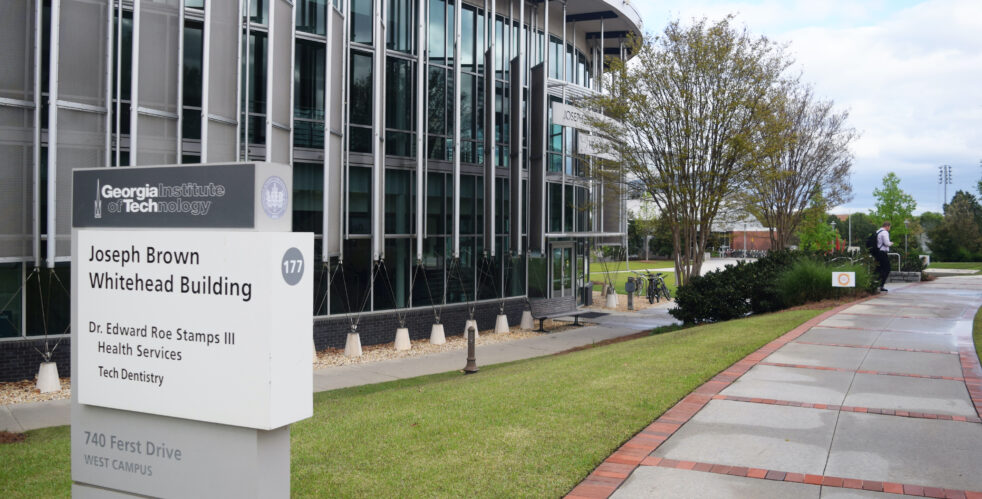Over four months ago, students across the country had their lives upended when they were abruptly sent home due to COVID-19 concerns. This pandemic has shone a light on the flaws of our institution and how complicit the administration is when it comes to University Systems of Georgia’s (USG) guidelines that are both rigid and ill-defined. When there was originally no intention for the institution to require masks, it took thousands of students and professors shaming us online for us to put a mask mandate in place.
Shortly thereafter, the U.S. Immigration and Customs Enforcement (ICE) released a rule change that would prohibit international students from entering or staying in the country if their entire class schedule is completely online. This ruling could impact the nearly 7000 international students currently enrolled at Tech. Unsurprisingly, we watched our institution pull the “our hands are tied” card yet again due to our relationship with USG. We saw top-ranked universities show compassion for their international students and stand in solidarity with them before the rule was rescinded. As an institution led by a former international student, we expected more from our president. Moving forward, the Technique Editorial Board would like to see more clarity and transparency from the administration. As a staff, we came together to discuss what the safest transition into fall semester should look like for students and staff.
On July 15, a virtual town hall was held by the Provost Dr. Rafael L. Bras and President Ángel Cabrera of Tech. One of the first things addressed during the meeting was the idea of an “Online COVID-19 Health and Safety Training” being completed by every student before returning to campus. Our question to administration is how will it be ensured that everyone completes it? We believe that if it is not completed before classes begin, then a registration hold or an impact on student’s grades should be considered, much like the AlcoholEDU program that first years complete before entering Tech. A negative effect on a student’s grade is the most significant punishment for the traditional overzealous Tech student.
Likewise, the proposed “COVID Daily Self Checklist”, which helps students spot traditional symptoms of the virus like a temperature above 100.4 F or experiencing shortness of breath, should be taken seriously, but in all likelihood it will not. The ugly side of Tech culture, which is to put academia before one’s own health, hinders the effectiveness of a self-checklist. What incentive will there be for overachieving students that do not feel well but have yet to take a COVID-19 test, to stay home? The average Tech student will write off their symptoms if it means avoiding missing class and falling behind.
On the same note, there needs to be a revamping of the Tech attendance policy because according to the recent town hall, there are no formal institutional regulations on attendance. This should simply not be left up to professors. It has also been said that only 25% of classes will be entirely online. This percentage seems staggeringly low in comparison to other universities across the country like Harvard, Rutgers, Princeton and many others that have chosen to go online completely. There needs to be a clear plan set in place for the arrival of hundreds or thousands of asymptomatic students and staff. The one obvious answer is mandatory testing for everyone that plans to work or go to class on campus. As of now there are only plans to have testing available for symptomatic people. It seems as though Tech has plans to expand testing, but in no way does it seem like testing will become mandatory.
The various teaching modes have been one of the small bits of information dangled in front of students and we have all been waiting anxiously for July 20 to finally arrive. In-person classes should be prioritized in a clear-cut manner. This administration needs to ask itself whether or not there is any way for a class to be totally online and whether the benefits of meeting in person outweigh the risks. Instead of encouraging assigned seating, make it mandatory for COVID-19 tracking purposes. Give professors the authority to refuse students entrance into their class without a mask and allow students a way to anonymously report unsafe conditions in the classroom. The classes being held in person only mode need to be in the best interest of the student and not a ploy to demand more tuition.
In the case of hybrid and online-only classes, professors need to be proficient at the technology used to have class. It has become increasingly obvious on social media that a majority of professors feel as though they are being forced into in-person teaching. There needs to be better accommodations for professors with high risk family members. Likewise, students should not need to jump through hoops and check off every box in order to meet requirements for total online learning. Many students feel the battle with The Office of Disability Services is not worth the fight.
One of the highest affected minority groups by COVID-19 are African-Americans. This is important for us to take note of because the many of Tech’s custodial and food staff are African-American . There needs to be clear guidelines and access to PPE and testing set in place before school starts. If they want to start fighting racial injustice, then this is the place to start.
Although we have been disappointed with how information has been disseminated thus far, we look forward to the new round of information that will be released on July 20. As a highly accredited institution based in STEM, we need to set the example and stop directly going against our own science. We do not expect an across the board solution, but we do hold this institution to a higher standard of unity and respect for its students, faculty and staff.
